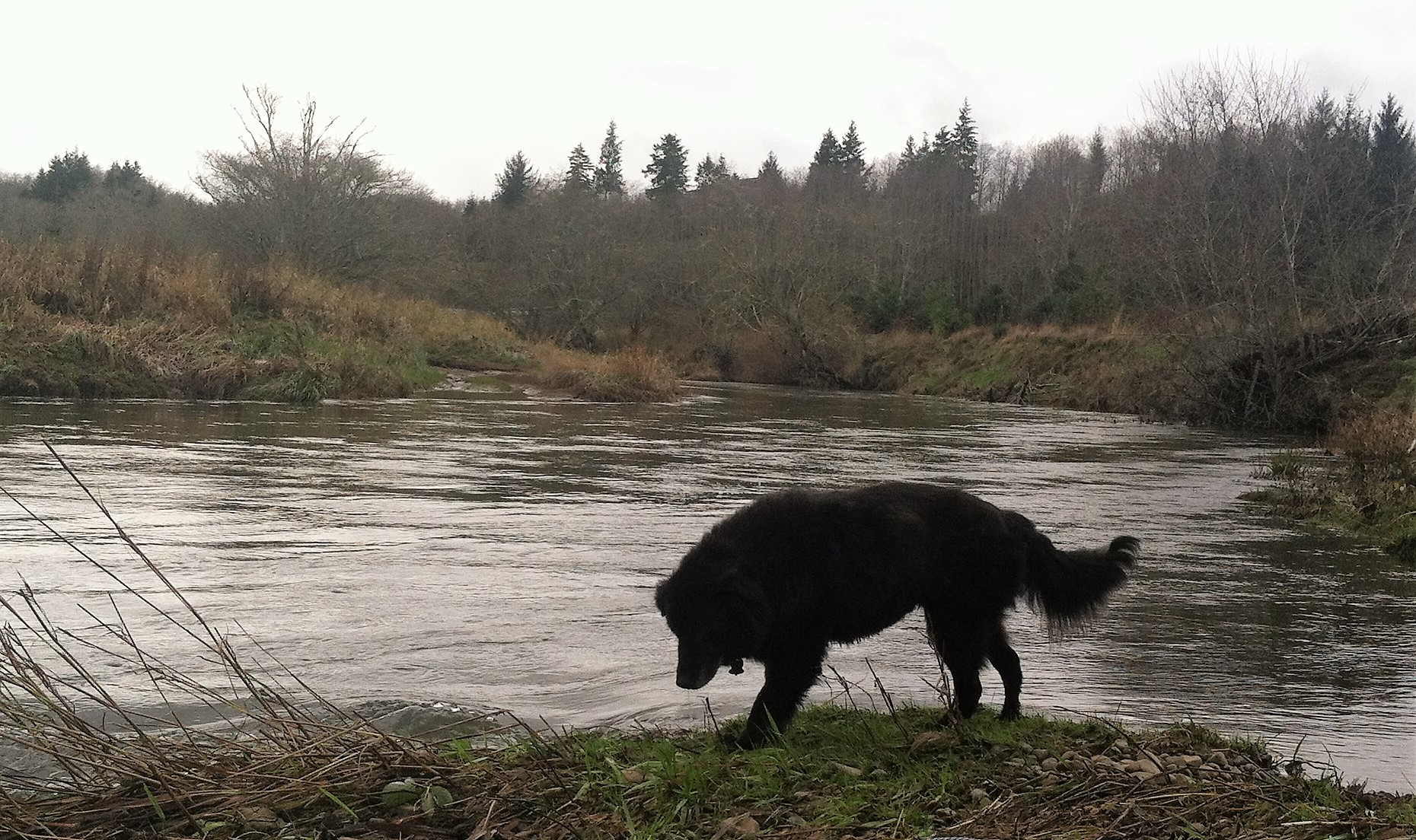Bonnie and Clyde Files 36
Treats stuffed in the front pocket of my corduroys; a paperback Siddhartha stuffed in back. I was heading to the river with Bonnie and Clyde and Herman Hesse’s classic Buddhist novel that I had taught to high school students for so many years but never would again.
Funny how the Christian kids always got the most out of the experience.
I had read the book a dozen times, in three continents, but never beside a river. It was high time because Siddhartha is the greatest river novel in the history of world literature and I wanted to read my favorite passages aloud to my canine sages and see where the words conveyed me. When you read something aloud, the material takes on special meaning and purpose. Articulation sluices nuggets of clarity that would have never otherwise appeared by reading the same passage in golden silence. Try it sometime.
For those of you unfamiliar with the novel, it unfolds the story of a privileged young man named Siddhartha who renounces his family’s wealth and prestige and spends his entire life trying to find answers to life’s eternal vexing questions. In his quest for truth, Siddhartha follows several paths, poverty and asceticism, then pleasure and materialism. He learns that desire is the root of all human suffering, the importance of letting go, and the value of seeking answers not from books, teachers, creeds and traditions, but rather through direct experience, self introspection and intuition. At the end of his life, after suffering and losing everything, he settles near a river with a wise old ferryman and begins to listen to the river.
And here I was, standing near a river with two old wise ferrymen, knowing I must listen to a river because I had lost everything and was still seeking to answer the eternal question posed in the novel: what must a person let go of to end suffering?
There is a subtle art to letting go and I intuited that I had done it badly the past 18 months and perhaps injured people along the way. But as Siddhartha shows us, it is never too late to learn and here I was a student in a river classroom trying to learn.
I opened the book to my favorite passage, near the end ,where Siddhartha is listening to the river, the one I used to read aloud in my classroom to conclude the study of the novel. I read the passage aloud to Bonnie and Clyde and my voice resounded up and down the river and perhaps into the clearcuts, the latter which certainly needed to hear Hesse’s healing words on the eternal function of the water cycle—the one true science and religion on the planet.
Siddhartha tried to listen better. The picture of his father, his own picture, and the picture of his son all flowed into each other…They all became part of the river. It was the goal of all of them, yearning, desiring, suffering; and the river’s voice was full of longing, full of smarting woe, full of insatiable desire. The river flowed on towards its goal. Siddhartha saw the river hasten, made up of himself and his relatives and all the people he had ever seen. All the waves and water hastened, suffering, towards goals, many goals, to the waterfall, to the sea, to the current, to the ocean and the goals were reached and each one succeeded by another. The water changed to vapor and rose, became rain and came down again, became spring, brook and river, changed anew, flowed anew.
Bonnie and Clyde looked at me as I read. They were present at the river and nowhere else. They had let everything go. Well, except Clyde and his insatiable desire for treats! I fed them both, scratched their backs, and went back to read a few more passages aloud. I heard the words and kept asking: what remains to let go?
Siddhartha figured it out beside his river and attained Nirvana.
My answer didn’t come.
But I will keep trying, perhaps for the rest of my life. Dogs will doubtless assist me.
(If you found this post enjoyable, thought provoking or enlightening, please consider supporting a writer at work by making a financial contribution to this blog or by purchasing an NSP book.)

